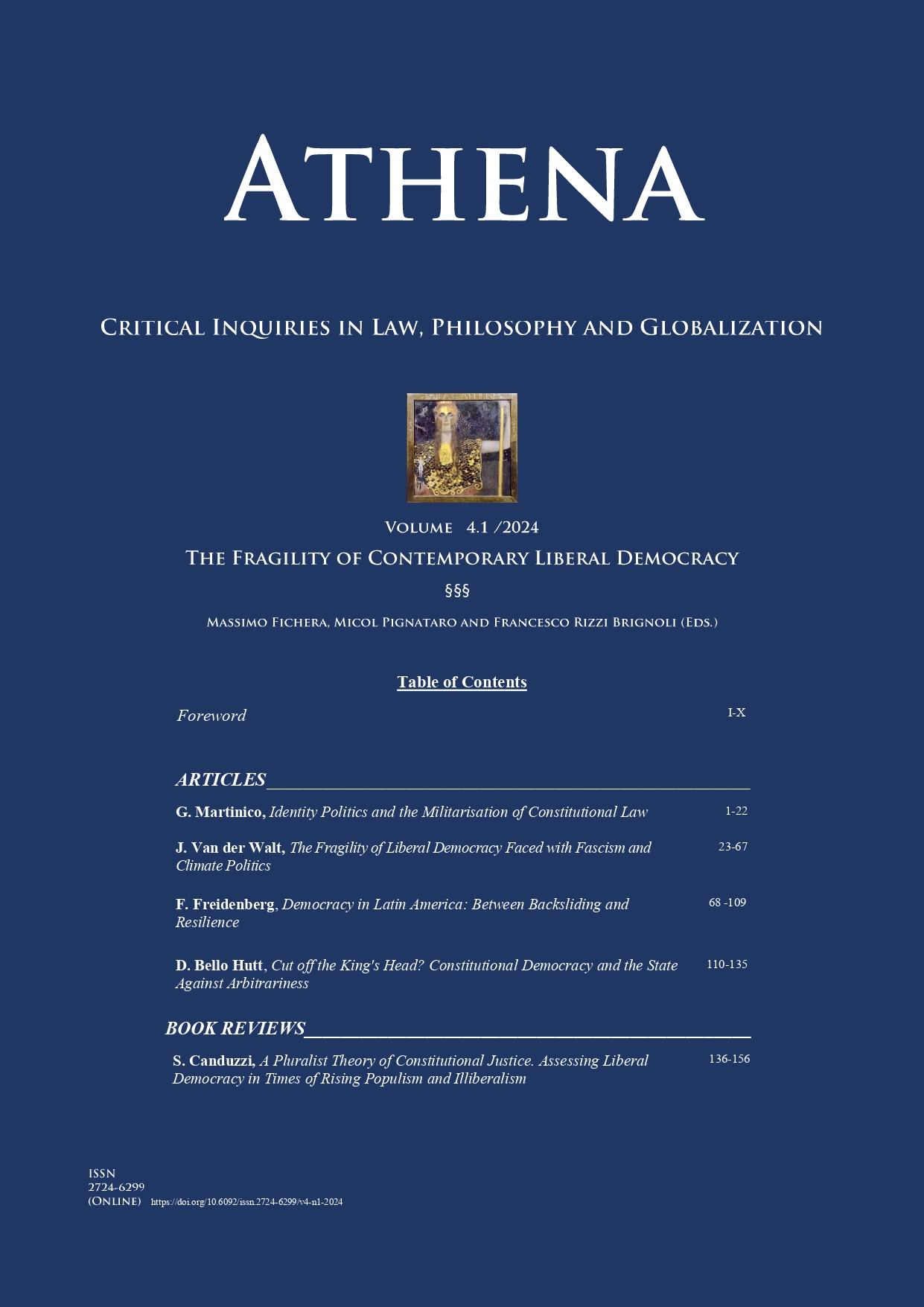Democracy in Latin America: Between Backsliding and Resilience
DOI:
https://doi.org/10.6092/issn.2724-6299/19152Keywords:
evaluation of democracy, democratization, backsliding, resilience, Latin AmericaAbstract
Democracy is strongly threatened, but, even so, it still resists. Although comparative literature is divided between pessimists and optimists (Freidenberg and Saavedra Herrera, 2020), or between those who see its setbacks (Bermeo, 2016; Diamond, 2020; Haggard and Kaufman, 2021) and those who highlight its resilience (Freidenberg 2024; Merkel and Lührmann 2021; Boese et al. 2021; Lieberman et al., 2022; Freidenberg 2023; or Levitsky and Way 2023), this research critically assesses the health of democracy, especially in two dimensions: electoral and liberal for 18 Latin American countries since 1978. The main argument contends that there is no single trend indicating global backsliding or, on the contrary, a generalized advancement of democracy, but rather, in any case, there are changes in different directions within the two main dimensions. While the liberal dimension is receding, the electoral dimension is being resilient. Backsliding is identifiable in relation to loss of basic commitments and the elites' disloyalty to democracy; difficulties in maintaining the currency of the Rule of Law, pluralism, respectful coexistence, and the independence of institutions; strategic manipulation of the formal rules and difficulties of access to resources and welfare; while advancements are visible in stability and cleanliness of elections, autonomy and professionalism of electoral arbitrators; alternation of power and the fact that those who govern lose elections; active participation of pro-democracy citizens; efforts for the inclusion of underrepresented groups and the building of parity democracies, among others.
Downloads
Downloads
Published
How to Cite
Issue
Section
License
Copyright (c) 2024 Flavia Freidenberg

This work is licensed under a Creative Commons Attribution 4.0 International License.





